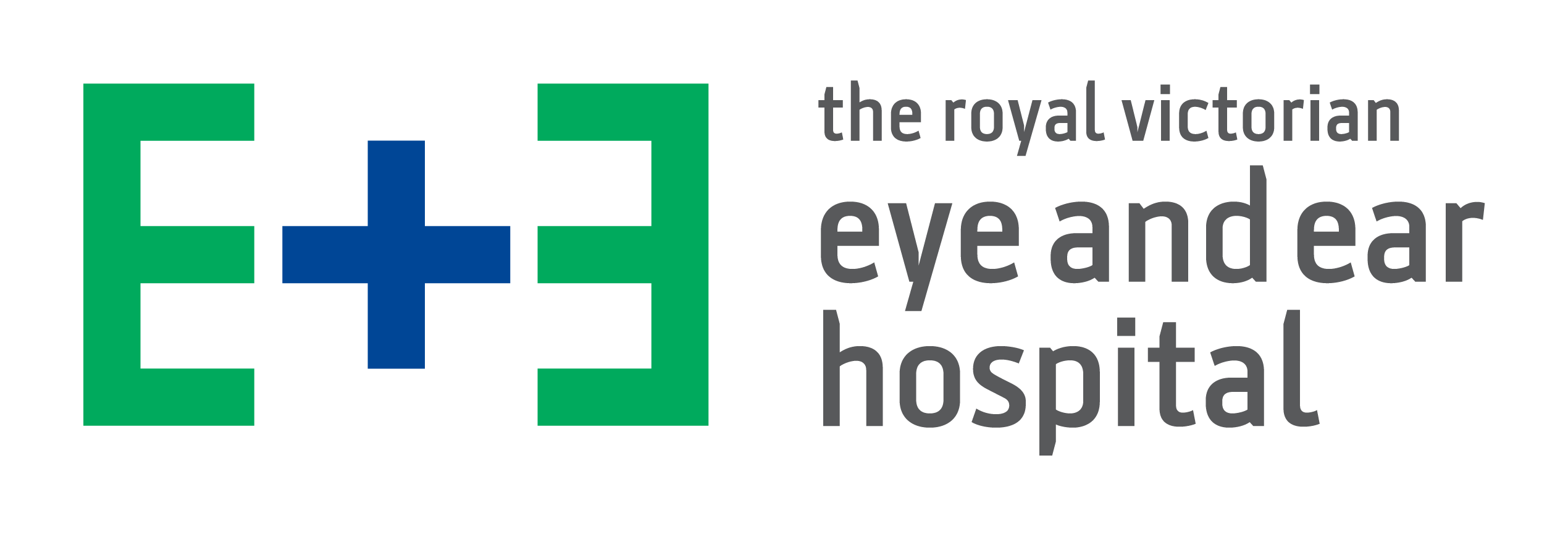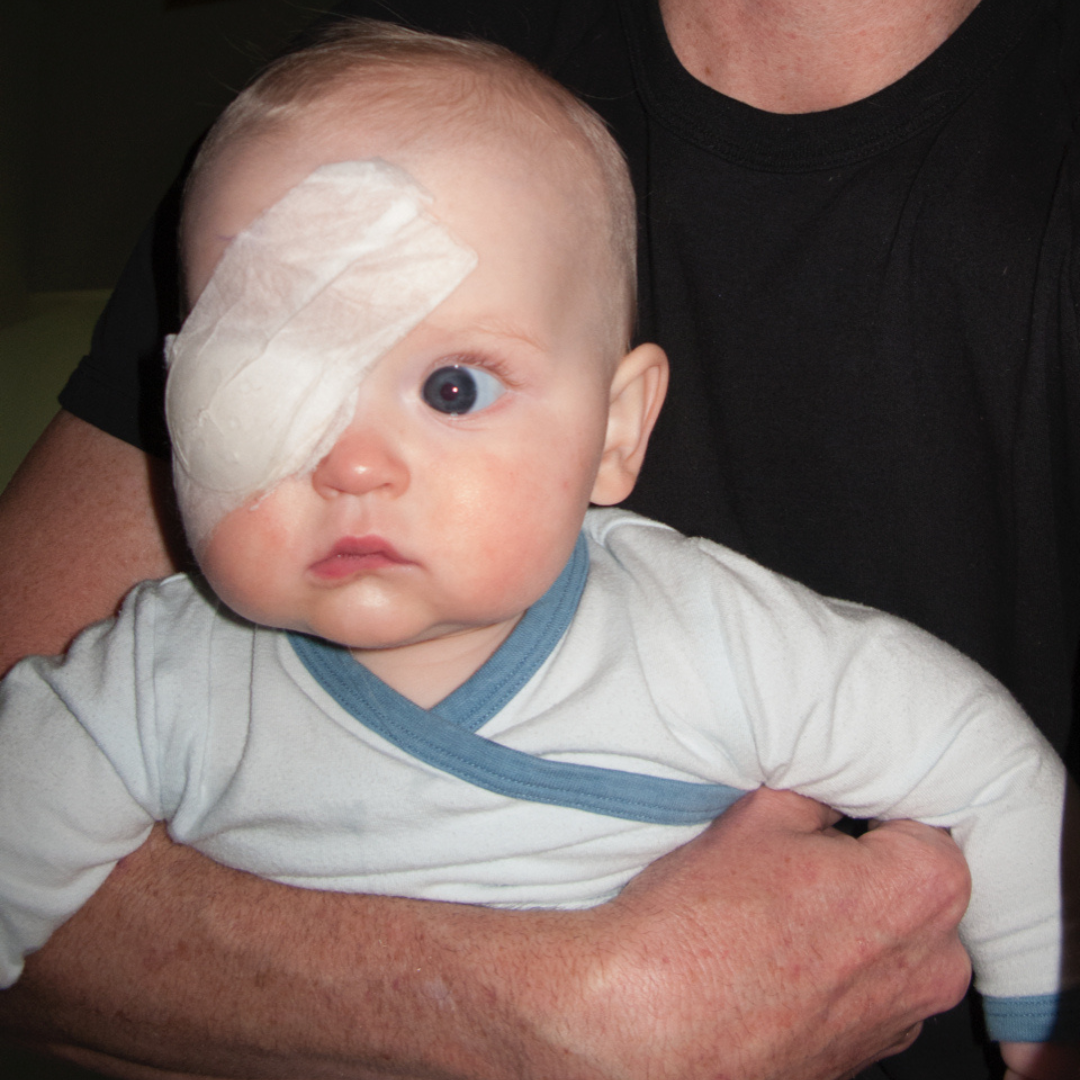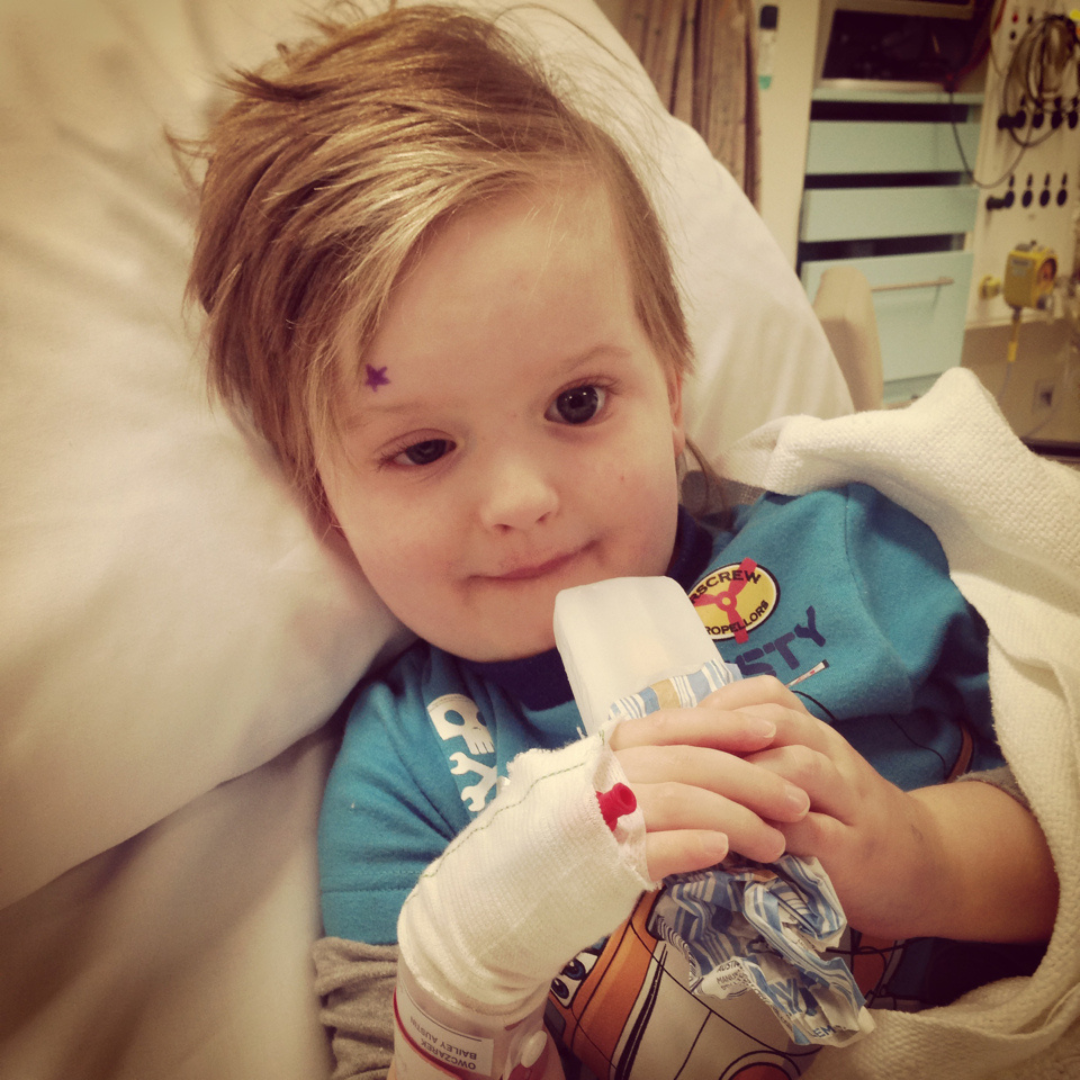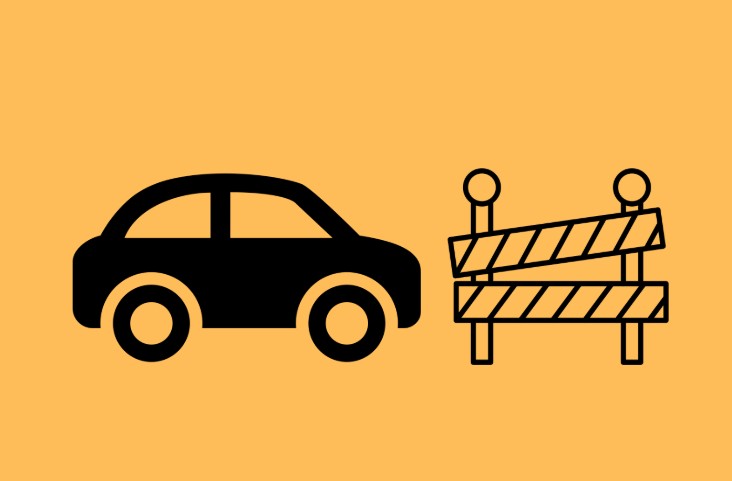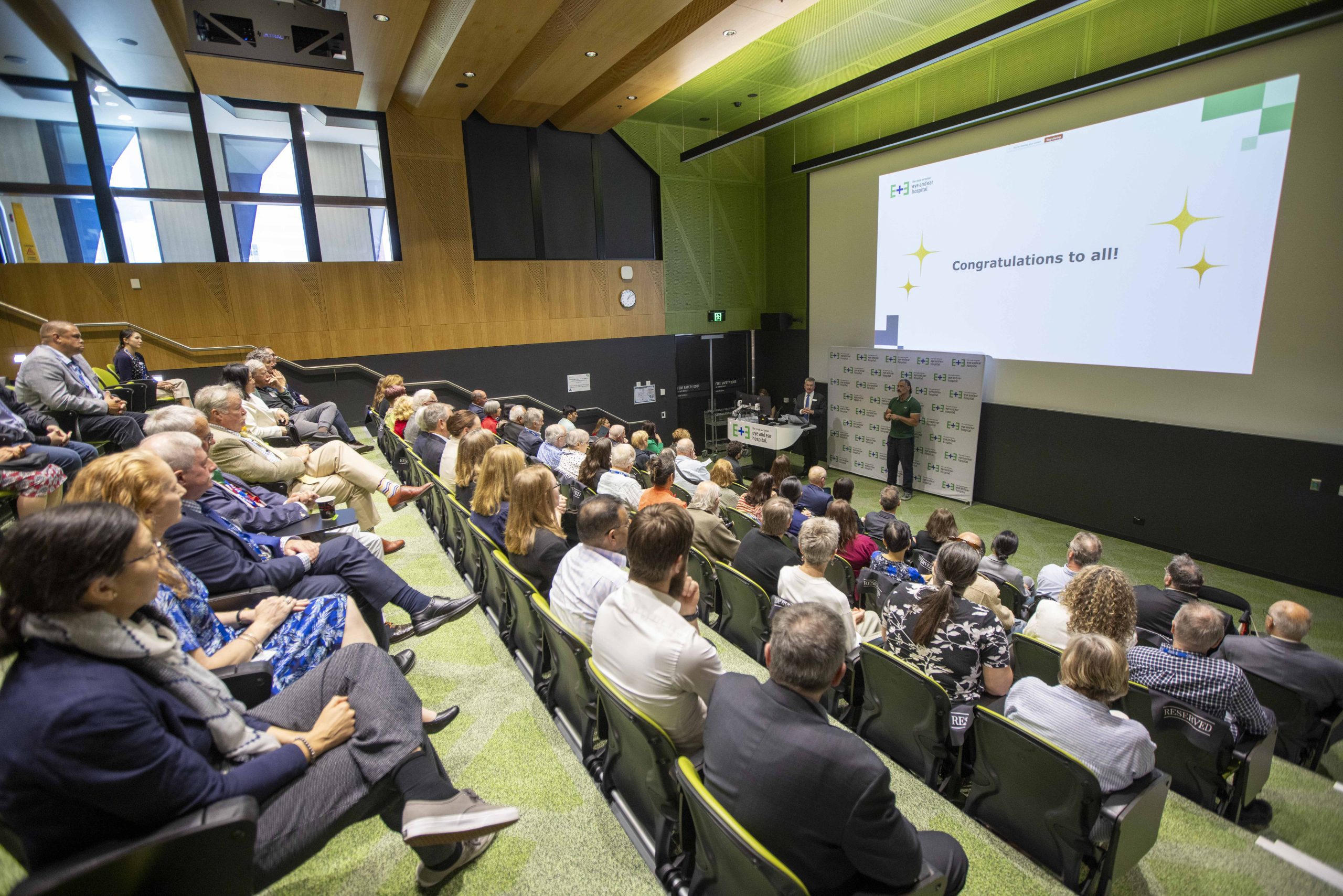10 October marks World Sight Day, a day which raises awareness of eye health and in 2024, the day’s theme is ‘Love your eyes, kids’. To highlight the importance of childhood eye care, the Eye and Ear is sharing Bailey’s story.
Celebrating World Sight Day with Bailey
Nina and Tony’s firstborn son Bailey was born with infantile glaucoma, a condition that is the leading cause of irreversible childhood blindness worldwide. If left untreated, Bailey would start to lose his peripheral vision and inevitably go blind.
“As he was turning three months old, we noticed one of his eyes looked cloudy,” Nina recalls. “We took him to our local GP, who referred us to the hospital and within a day he was having surgery.”
Dr Jon Ruddle has been Bailey’s ophthalmologist since that first surgery fourteen years ago. Dr Ruddle is a consultant ophthalmologist who leads the Eye and Ear’s Ocular Genetics clinic and works in the Glaucoma Investigation and Research Unit. He’s calling for parents to pay attention to their children’s vision so that any issues can be recognised and treated.
“Children’s vision is often neglected, but most conditions can be treated much more effectively if they are picked up early. Regular eye checks from an early age are an important preventative measure.”
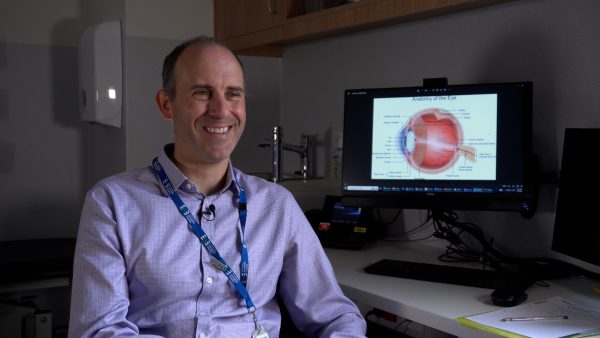
Nina adds that many parents aren’t aware of the importance of vision.
“As a parent, I had no idea that you need to check the vision of your babies or young children. I’d never heard that a baby could be born with glaucoma – I didn’t know much about it at all.
“It’s critical that you take notice when things don’t seem right and you take action and see a doctor.”
For Bailey, managing his condition will be a lifelong journey. He has regular checks to ensure his eye pressure is not too high, sees Dr Ruddle two or three times per year and uses eye drops every day.
“Once you have glaucoma as a child, regardless of how it’s caused, you need lifelong eye care and ongoing monitoring of your intraocular eye pressure,” says Dr Ruddle.
Bailey has had several surgeries due to his glaucoma. One side effect of his treatment was the development of cataracts, which required surgery at the Eye and Ear when Bailey was three years old.
Ongoing management such as daily eye drops are now part of Bailey’s everyday routine and ensure his eyesight is quite good. He can’t play contact sports due to the increased risk of eye injury, but Bailey is an avid violinist.
“I play a lot of classical music, but my favourite is jazz,” he says.
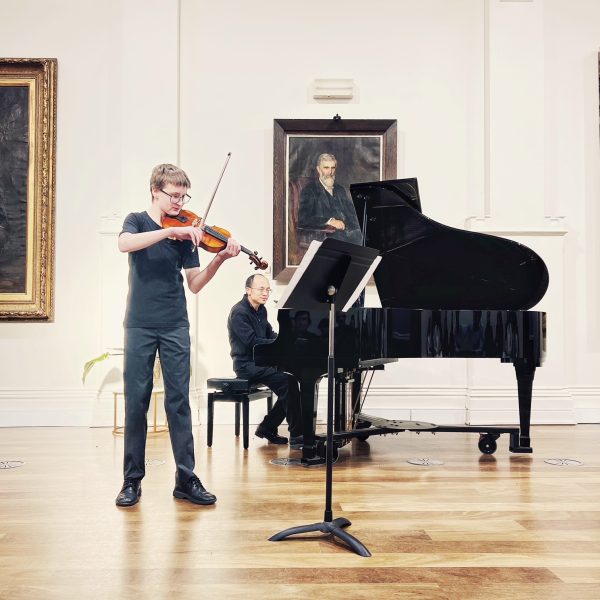
He also enjoys playing video games with his friends and hopes one day to become a pilot.
“Bailey and his friends love to play Microsoft Flight Simulator,” says Nina. “They’ll pick a destination and meet at different airports all round the world.”
Thanks to early medical intervention, Bailey’s prognosis is good.
“I feel incredibly lucky that we’ve had access to excellent medical support and a really high standard of care. I don’t think many people realise how lucky we are in Australia to have access to paediatric ophthalmology,” says Nina.
“We can’t thank Dr Ruddle enough – for the first five years of his life, Bailey saw Jon more than any of his extended family.”
